
Where Are They Now?: Favorite Fictional Teens
The internet has made it next to impossible to miss anyone, hasn’t it? If I have a dream about my aunt who lives halfway across the country, I can easily open up an email and ask how she’s doing. Of course I’ll mention my dream to her as well (“it involved you using a butterfly net to catch a runaway prisoner, and you know that that means”). If I for some strange reason get a hankering to peek into the life of my former high school nemesis—I mean why wouldn’t I occasionally—I can hop over to Facebook and search for her, too.
I can look back as far into the past as I want—hey, kid who stood beside me with the same last name in my kindergarten class! Found you on Twitter. You’re last name’s different though. Go you!
So what do I do when I get an itch to find out what my favorite literary characters of old are up to these days? I can only ever hope to speculate of course, unless an author decides to tell me (thanks, J.K. Rowling!) and even then, I won’t ever be fully satisfied. I mean, what do nightly meals look like in the Granger-Weasley household?
Because you know Hermione hyphenated her last name. You just know she did.
Anyway, wonder no more. Here are a few of my ideas on what the current lives of some of my personal favorites from literature from years back look like now. In case you were curious, too.
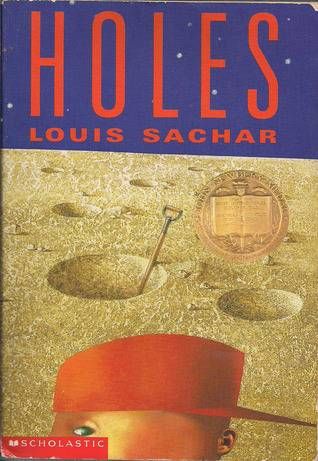
Stanley’s seen a lot in his day. Between living at a boys’ detention center on a dried-up lake to ending his family’s ancient curse, the boy had a lifetime experiences by age 14. Luckily, he’s now got a squeaky-clean record, so he can pass up those elementary school janitor gigs. Stanley has a big heart and natural heroism, both of which make him a great EMT. A buff, I-dig-six-foot-holes-in-my-spare-time EMT. The kind of guy you hope shows up when your grandma chokes on a chicken leg, because his compassion and sense of humor mean that grandma lives to see another day. She might even make herself choke again, just so he’ll come back.
He probably also mentors young boys on weekends. He’s an advocate for literacy after all!
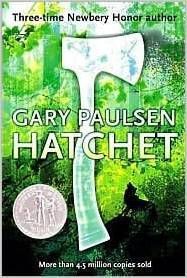
You thought Stanley had it rough? Try living like Brian for a day. In junior high, his parents divorced, his mom was messing around with another blonde-haired man, and Brian…well, he was lost in the woods after a plane crash living on the land. Hatchet is the first book I remember reading in school that really struck me—I had to know what would happen to Brian! But it’s pretty obvious what he’s up to now, isn’t it? He’s the old, wise, English teacher you had in school that you loved even when he was hard on you. Brian heeded the lesson his own English teacher tried to teach him in school while he was stranded, and used his mind to control his body rather than the other way around. That advice always stuck with him. Now, every year Mr. Robeson starts his freshman English classes with a quick dramatic tale about a boy surviving in the woods after a crash. “This,” he probably says “is you, lost in a new school trying to make it through your first year.” Does he reveal the true protagonist? Maybe not. But if an astute student does a quick Google search of his name, they’ll find his memoir and inspirational nonfiction listed. All bestsellers.
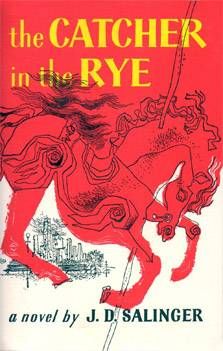
I know that, technically, if Holden was 16 in 1951, he’d be 80 today. But who was Holden in his golden era? After a pretty weird series of events and a few months in a mental facility, Holden eventually went back to school. He likely graduated from a private school for troubled kids and went on to college, where he graduated without much decoration with a degree in Communications. He went on to take a job in sales—cleaning supplies was his forte—at which point he fell in love with a slightly older widow whom he regularly visited. She lost her husband in World War II, merely a handful of years after their wedding. The two fell in love, married, and had three children. They moved up to Albany, where they’ve lived ever since.
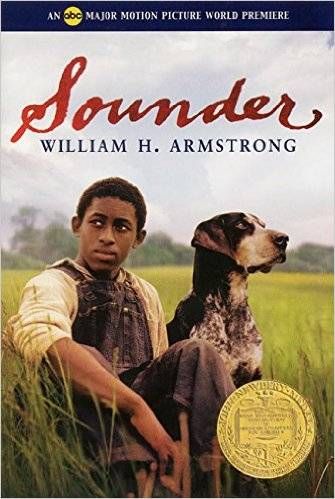
Sounder was written in 1969 but set sometime in the post-Civil War era of the 19th century. So, I know the obvious on this one. But help me out here, okay? Unfortunately we’ll never know the name of this narrator since Armstrong didn’t give it to us (the only name we get is Sounder, the prized hunting dog). What we do know is that he’s a strong-willed, honest, and hopeful boy who loves his family, admires his father, and wants to get an education. He’s figuratively an “Every Boy” for a whole generation of under-represented people in both 1970s literature and Civil War-era literature. (Go Mr. Armstrong!) But who was this boy as an adult? He was a Southern Black man, whom we know by the ending of the novel went on to begin his education. After losing his father and his best friend Sounder, he likely heavily pursued his school and maybe after graduation moved up North where there were likely more opportunities for him. Having been permanently scarred by the injustice his father faced during his years in prison (for stealing a ham, mind you), he may have gone on to become a lawyer representing clients who couldn’t afford good counsel otherwise. Of course, he kept his dogs, married a whip-smart—and gorgeous–minister’s daughter, and told Bible stories to his own children at night just like his momma did to him. That sounds about right to me.
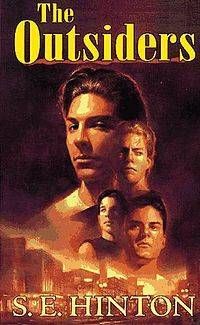
Don’t even get me started on this book. From the greaser hair to the word tuff to young Ralph Macchio, I was (correction: am) thoroughly obsessed. Hinton gave us a bit of insight to Ponyboy’s life after Johnny Cade’s death in That Was Then, This Is Now, but of course I’m not satiated. How did Ponyboy’s life turn out? Well, much as his oldest brother Darrel insisted, Ponyboy was made for more than just roofin’ houses. With the help of Darrel and middle brother Sodapop, Ponyboy landed a track scholarship and attended UCLA, where he pursued a degree in English (seems to be a theme…) and landed a gig teaching at the university. He is a respected scholar whose research on poverty and crime have landed him major prizes and numerous TED Talks. He is happily married to his college girlfriend, a novelist. He still greases his hair.
Well, now you know. You’ve got my version, anyhow. What do you guys think? Could I be right about my favorite teen characters’ adult lives? Do I have it all wrong? What about your favorite characters from eras past—where do you think they are now?













